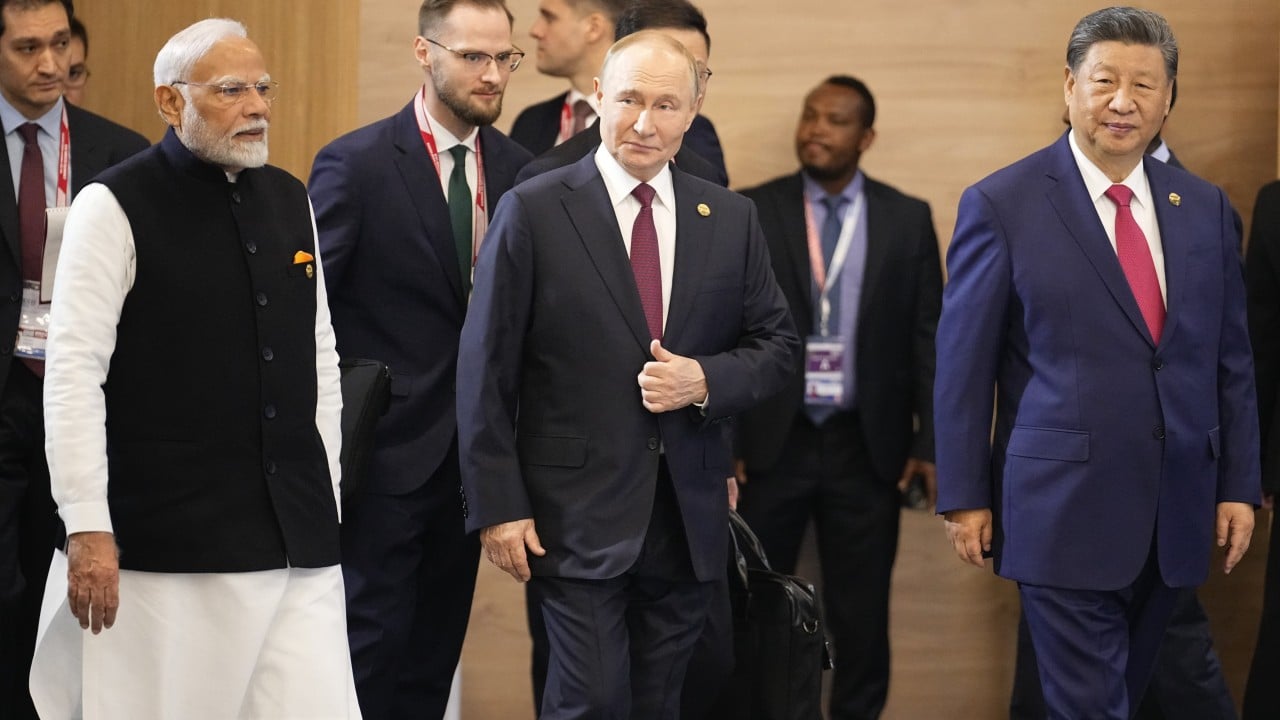Indian Prime Minister Narendra Modi’s recent efforts to resolve a long-standing border dispute with China and broker peace in global conflicts has divided opinion at home, with critics calling it electoral posturing and supporters seeing it as a step toward strengthening India’s global standing and economic future.
Advertisement
Images of Modi shaking hands with Chinese President Xi Jinping on the sidelines of a Brics summit in Russia – their first meeting since a deadly border clash between their two countries four years ago – were splashed across Indian media on Wednesday.
Modi also reportedly met Iranian President Masoud Pezeshki during the same summit, amid speculation that he may facilitate a peace settlement in the Gaza conflict between Israel and militant groups such as Hamas and Hezbollah.
These initiatives follow his high-profile visits to Russia and Ukraine earlier this year, where he urged both nations to embrace dialogue over warfare.

Modi’s supporters, who often call him a Vishwaguru – Sanskrit for “teacher to the world” – have promoted his peace efforts widely on social media. Sceptics, however, argue that these high-profile meetings are more about boosting his image with Indian voters than achieving lasting diplomatic results.
Advertisement

